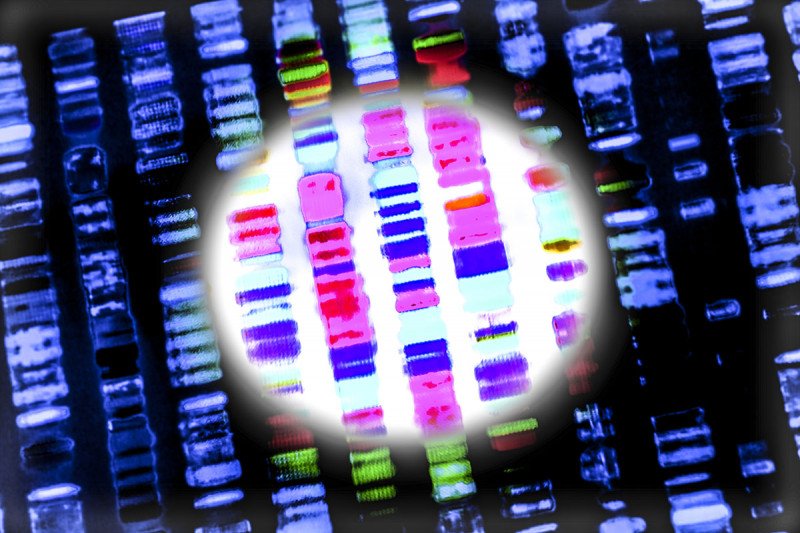
Reconsidering risk: The list of cancer-predisposition genes that doctors test for is growing.
When it comes to genes that predispose to cancer, most people have heard of BRCA1 and BRCA2. Inherited mutations in these genes greatly increase a person’s risk of developing several types of cancer, including breast, ovarian, prostate, and pancreatic cancer.
But these aren’t the only genes that can influence cancer risk. Scientists now know about several others, each with their own level of associated risk.
BRCA1 and BRCA2 are somewhat unusual in that they increase cancer risk to such a large degree. They are what’s called high-penetrance genes, which means they raise a person’s lifetime risk of developing cancer by more than fivefold. Genes that increase cancer risk twofold to fivefold are called moderate penetrance, while those that increase the risk less than twofold are low penetrance.
Most of the cancer-predisposition genes that researchers have discovered in recent years fall into the moderate- and low-penetrance categories. Typically, low-penetrance genes don’t change the way a person is cared for, and so few are routinely included in testing. But moderate-penetrance genes are a different story.
“What’s really important about moderate-penetrance genes is they can affect how we counsel and care for patients, particularly if they also have a family history of cancer,” says Zsofia Stadler, a medical oncologist and Clinical Director of the Clinical Genetics Service at Memorial Sloan Kettering. “We have come to realize that patients who have a mutation in a moderate-penetrance gene along with a strong family history of cancer are at an especially high risk.”
Three moderate-penetrance genes discovered in recent years are ATM, PALB2, and CHEK2. These genes may increase one’s risk for several types of cancer, including breast, ovarian, colon, prostate, and pancreatic.
Like BRCA1 and BRCA2, the normal function of these genes is to help with the process of repairing damaged DNA. Mutations in these genes can increase the chance that DNA damage will go unrepaired and result in more mutations, raising cancer risk.

Zsofia Stadler
As opposed to mutations in the high-penetrance BRCA1/2 genes, where risk-reducing surgery such as oophorectomy (removal of the ovaries) is recommended, in patients with mutations in ATM, PALB2, and CHEK2 risk-reducing surgeries may not be warranted, and require an individualized discussion with each patient. Oftentimes, the impact of these moderate-penetrance genes is felt more on screening procedures. Mutations in these genes often suggest that a person should be screened earlier for cancer, with such tests as mammography, breast MRI, and colonoscopy.
A woman with a mutation in PALB2, for example, should begin breast cancer screening at around 30 years old (rather than 40, as is recommended for women at an average risk) with mammography as well as breast MRI. That’s because she has five times the risk compared with someone without this mutation.
A person with a CHEK2 mutation should start having colonoscopies at age 45 rather than at age 50. They have a 10% lifetime risk of colon cancer, compared with 5% for someone without this mutation.
When to Test
Not just anyone can or should have genetic testing to determine whether they carry moderate-penetrance genes, however. Doctors recommend people for genetic testing because they either have a family history of cancer, are of an ancestry (such as Ashkenazi Jewish) known to be at a higher risk, or are a cancer survivor who could be at risk of developing a new cancer.
There is a risk to overtesting without a clear reason. For example, finding that a person has a low- or moderate-penetrance gene mutation and no personal or family cancer history may have limited clinical value, says Dr. Stadler. And it may lead to unnecessary screening or even risk-reducing surgery.
On the other hand, for people with cancer who have been tested in the past, say before 2004, Dr. Stadler says there could be a good reason to be tested again with new technology that includes more genes.
“We now know about many more predisposition genes for breast, ovarian, and colon cancer and have better tools to detect mutations within these genes,” she says. “For those previously seen by the Clinical Genetics Service at MSK, patients may call the clinic to inquire if updated genetic testing is needed, and if so, we’ll get them set up to come in.”



